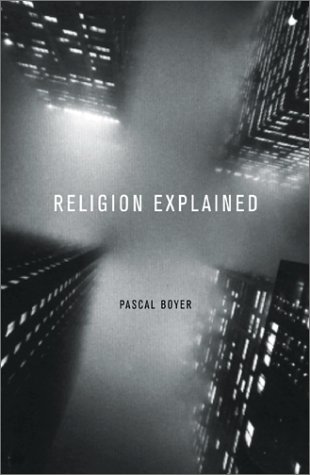How is it possible to live a moral life if we don’t believe in a god?
Without belief in God, some believers shriek hysterically, we would have no moral code. We would believe we would be free to kill and steal and do all sorts of other horrible things.
Christians, Muslims, Jews claim that their God gave humanity its moral laws or codes. Other believers attribute moral interests to their respective deities, too. Gods are so interested in the morality of our actions, we are told, that they will even punish or reward people according to whether they have been good or bad.
 What follows is from a book first published a decade and a half ago so others more in the know may be able to contribute more current insights or simply alternative explanations. Pending those updates here is Pascal Boyer‘s explanation for why people connect moral interests to gods or spirits or ancestors that he set out in Religion Explained: The Evolutionary Origins of Religious Thought.
What follows is from a book first published a decade and a half ago so others more in the know may be able to contribute more current insights or simply alternative explanations. Pending those updates here is Pascal Boyer‘s explanation for why people connect moral interests to gods or spirits or ancestors that he set out in Religion Explained: The Evolutionary Origins of Religious Thought.
Boyer writes:
[W]e know that religious codes and exemplars cannot literally be the origin of people’s moral thoughts. These thoughts are remarkably similar in people with different religious concepts or no such concepts. Also, these thoughts naturally come to children, who would never link them to supernatural agency. Finally, even religious people’s thoughts about moral matters are constrained by intuitions they share with other human beings, more than by codes and models. (p. 191)
Boyer begins by addressing the many cross-cultural studies that demonstrate beyond all doubt what all parents have always known: that even young children have moral intuitions. They don’t need to be taught by a thunderous voice from heaven that it is wrong to intentionally deceive someone else with misleading information. No-one taught my infant that it is wrong to lie before he told his first lie with clear signs of associated guilt. Further, young children know the difference between “moral principles” and “conventional rules”. In a classroom, for example, they know the difference between shouting out in class and stealing someone’s pencil case. They also know that stealing an eraser is not as serious as hitting others.
Most significantly, they know that
social consequences are specific to moral violations. (p. 179)
If they forget or disregard an instruction not to leave their notebook beside the fireplace they will not be surprised or troubled by the worst consequences in the same way they expect to suffer social ostracism or condemnation for being caught stealing.
So experimental studies show that there is an early-developed specific inference system, a specialized moral sense underlying ethical intuitions. Notions of morality are distinct from those used to evaluate other aspects of social interaction (this is why social conventions and moral imperatives are easily distinguished by very young children). (p. 179)
There is something remarkable about such moral intuitions in the story of our development to maturity. Certain actions are seen as immoral for their own sake no matter what, and that understanding does not change into adulthood. Stealing an eraser is wrong, period. Now there might be circumstances where you, the thief, think stealing it is justified — the owner doesn’t care; its owner stole something from you earlier so stealing the eraser is rationalised as “just deserts”; etc. — but the fact remains we know that stealing the eraser is nonetheless a moral breach.
So it is all the more interesting that no such change is observed in the domain of moral intuitions. For the three-year-old as well as for the ten-year-old and indeed for most adults, the fact that a behavior is right or wrong is not a function of one’s viewpoint. It is only seen as a function of the actual behavior and the actual situation. (p. 180, my highlighting in all quotations)
